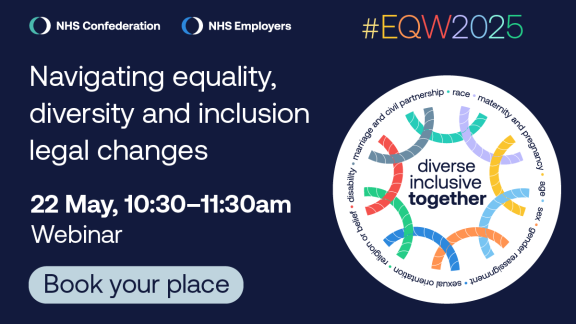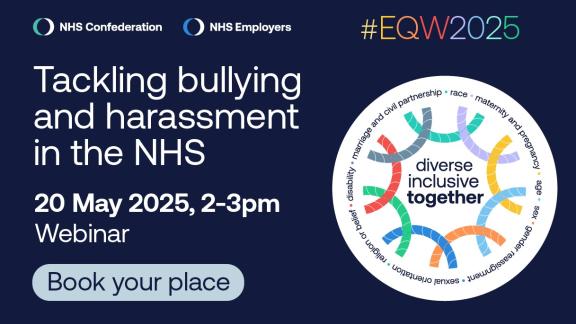My childhood hero and what he taught me about disability

David Wilkinson, director of people and organisational development, University Hospitals of Morecambe Bay NHS Foundation Trust (UHMBT) shares with us the discrimination his father suffered by his employer and how his experience has given him the passion to raise awareness of disability equality in his organisation.
Over the course of the last few years, I have been able to develop and utilise my passion for disability equality through my role as executive lead for equality, diversity and inclusion (EDI) at UHMBT, and through the network opportunities that my role affords me.
For those that know me well, they will recognise that my passion for disability equality does not come from a personal lived experience, but from observing the discrimination and challenges suffered by my dad throughout his life, which ended all too prematurely for reasons linked to his disability.
As a child I saw:
- someone constantly judged by what he could not do
- someone constantly overlooked for promotion because of attendance issues directly linked to his disability
- someone who received little or nothing in the way of reasonable adjustments at work, and ended up being sacked by letter after a prolonged stay in hospital
- someone whose employer had no insight into how his mental wellbeing was directly impacted by the physical disabilities he had and the chronic pain he suffered.
While I saw that, to me he was Superman, Steve Austin, Kevin Keegan - he was a man of immense compassion and kindness; he had time for people. He was a man who had an array of talents and abilities, a man who was always positive and supportive. He was a man that could do and did do.
Dad taught me a great deal, certainly much more than I credited him at the time, and when I look back, I see the lost opportunity presented to his employer. If only they could have focused on what he could do.
I was extremely fortunate to act as employer representative on the development of the NHS Workforce Disability Equality Standard (WDES), which seeks to close the deficit in the lived experience of people with a disability. This is something that we should all be passionate about. Twenty-two per cent of the working age population are known to have a disability, eighty three per cent of whom acquire their impairment in adulthood. They are three times more likely to be unemployed and considerably less likely to progress at work. Largely this is not due to their long-term condition or impairment, but instead is due to the societal barriers they face.
At UHMBT we will be using Disability History Month to raise awareness of disability equality, to share lived experiences and to promote what we are doing as an organisation to address this through our disability support network. We will showcase the work that the network does, how we currently compare against national WDES benchmarks and the actions we have prioritised for 2021-22, including creation of employment opportunities for people with disabilities.
We have been promoting our key developments, including the disability leave policy and disability passport, but the feedback received is that we are not doing enough. There are several possible reasons for this, including a lack of awareness, a discomfort in treating people differently, an unwillingness to think out of the box and create the opportunity for our disabled colleagues to be the very best that they can be.
In the last few weeks, through Disability History Month, I have come across examples of situations that I can change, because of my position, but which should be easier for everyone.
This included intervening in a case where an employee with a degenerative neurological illness was offered a designated car parking space, but it was 800 metres from their office space and required them to scale a significant hill and coaching a colleague with neurodiversity that was constantly being overlooked for promotional opportunities.
I have also commenced a review of our approach to managing the attendance of colleagues with a disability, so that their disability is recorded under a specific heading and reported separately and doesn’t apply to short-term sickness triggers.
I want to use the wisdom instilled in me by my dad’s experience to create a greater awareness and make a positive difference, making small changes that matter, which then grow and develop momentum.
Disability History Month gives every employer the chance to become involved, to learn more and see what change can be made.




